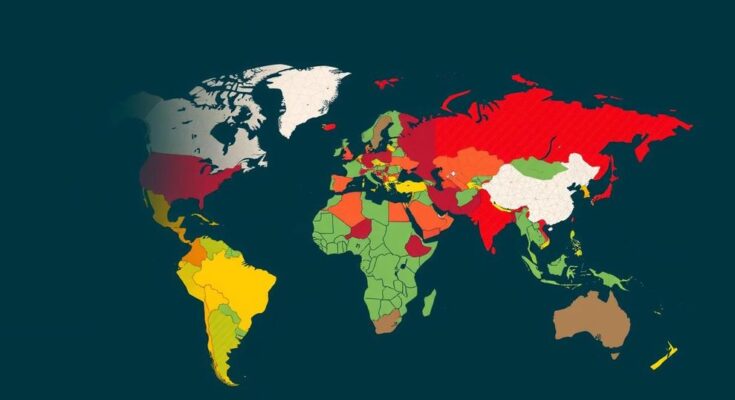Developing nations rebuffed a $300 billion climate finance pledge from wealthier nations, viewing it as inadequate amidst escalating climate crises. Callouts from various countries criticized the compromise reached at COP29, emphasizing a significant shortfall in addressing the challenges posed by climate change. The agreement reflects ongoing tensions over climate finance commitments in the context of global climate negotiations.
A significant climate agreement was reached during COP29, but developing nations have expressed strong discontent with a proposed annual financial pledge of $300 billion from wealthier countries. This agreement came after arduous negotiations among almost 200 nations in Azerbaijan. Chancellor Chandni Raina of India characterized the financial commitment as “paltry,” asserting it would not adequately address the challenges posed by climate change. Critics from several developing countries condemned the deal, viewing it as insufficient and indicative of a lack of commitment from wealthy nations.
The context of the negotiations included a series of catastrophic weather events that underscored the urgent need for climate finance, especially for nations least responsible for emissions yet most vulnerable to climate impacts. Despite their hopes for a more substantial financial commitment, representatives from countries like Nigeria described the agreement as an insult, and Sierra Leone’s climate minister echoed similar sentiments regarding the inadequacy of the pledged funds.
UN Secretary-General Antonio Guterres and UN climate chief Simon Stiell acknowledged the deal’s imperfections and called it a starting point rather than a definitive solution. The final figure of $300 billion was presented late in the negotiations, a number that is still below what experts identified as a necessary contribution of $390 billion. The agreement also highlights the challenges in reconciling expectations from developing nations and the political realities facing wealthier countries.
The climate deal emerged from the 29th Conference of the Parties (COP29) to the UN Framework Convention on Climate Change, convened in Azerbaijan amid increasing global concern about climate change and its impacts. Developing countries have consistently sought increased financial support from wealthier nations, which bear the historical responsibility for carbon emissions. The agreed pledge, at $300 billion, signifies a crucial financial component promised by developed nations but has drawn criticism for being inadequate compared to the needs of vulnerable countries on the front lines of climate impacts. The backdrop of extreme weather and global calls for stronger climate action only amplifies the expectations from climate talks.
The recent COP29 climate agreement, while marked as a critical step forward, has faced significant backlash from developing nations who view the financial commitment from wealthier nations as insufficient. Leaders from countries that are most vulnerable to climate change have voiced their dissatisfaction, highlighting the need for more substantial financial support. As discussions continue, the ongoing challenges of addressing climate finance underscore the critical role of international cooperation in tackling climate-related issues. Acknowledging the limitations of this deal, it is positioned as a starting point rather than a comprehensive solution.
Original Source: www.al-monitor.com




